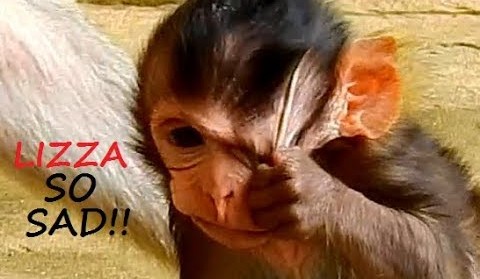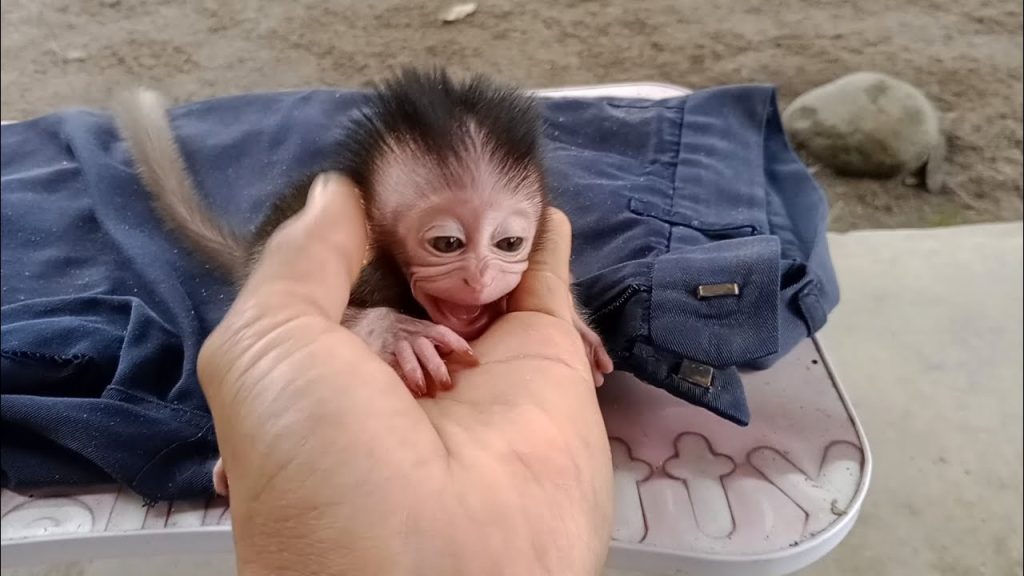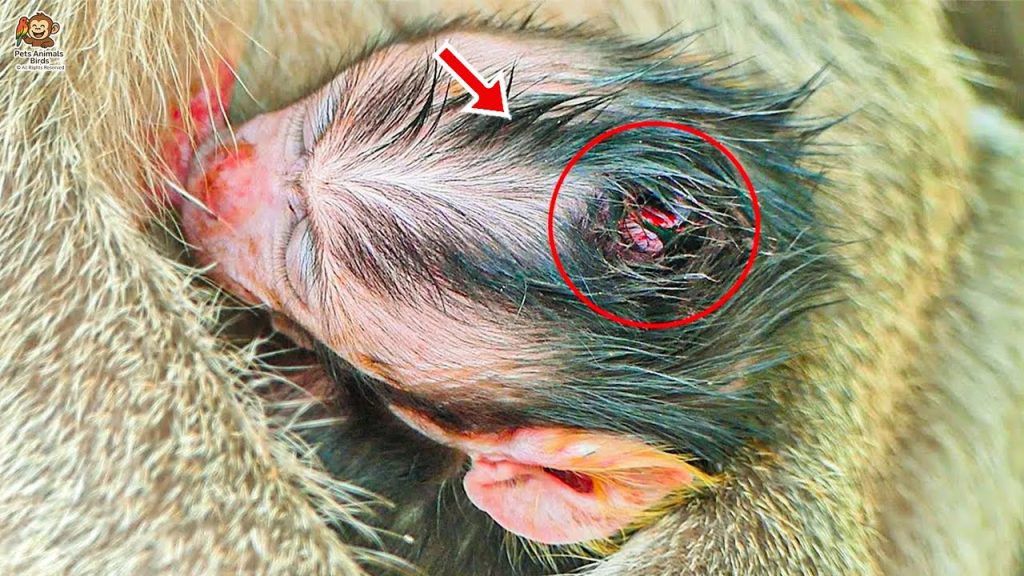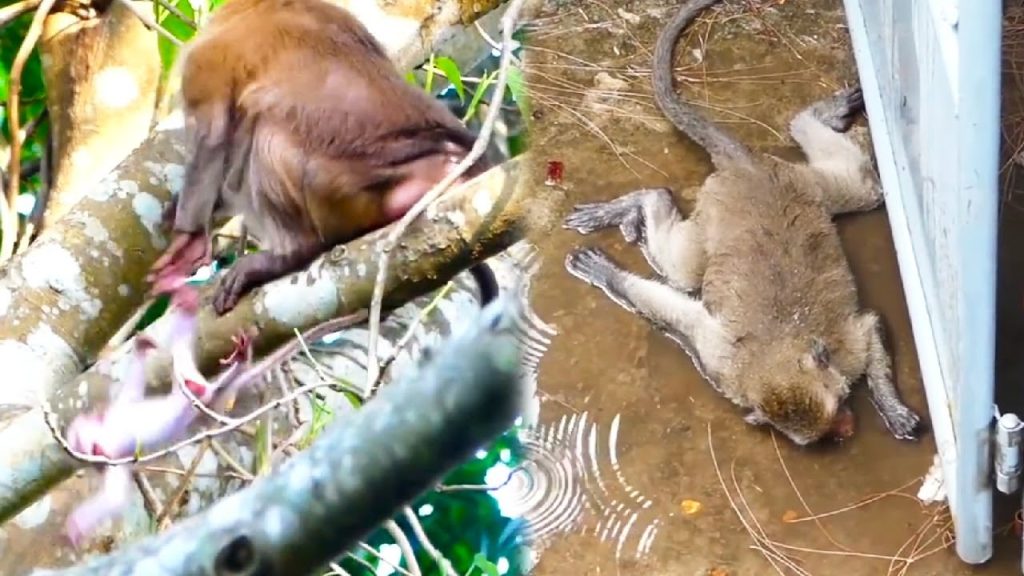
Tiny Lizza sat quietly under the tree, her face showing signs of both discomfort and sadness. A small wound near her cheek was still fresh—perhaps from a fall or a misunderstanding within the troop. But what seemed to bother her more wasn’t just the injury—it was the emptiness in her stomach.
Lizza was hungry.
Her mother, nearby, had recently started weaning her. This natural process happens to all baby monkeys as they grow, but for young ones like Lizza, it’s confusing and difficult. She didn’t understand why the comfort of her mother’s milk was suddenly being denied.
Lizza approached her mother, chirping softly, reaching out with tiny hands. She nudged gently at her mother’s belly, hoping for the warmth and security of milk. But her mother turned away, gently but firmly. To Lizza, it must have felt like rejection.
She didn’t throw a tantrum. Instead, she sat down with a quiet, pained expression—eyes big, body still. A little anger flickered in her movements, not at her mother, but at a world that suddenly felt unfamiliar.
Weaning is a tough but necessary part of growing up in the wild. It helps babies learn to eat solid food and become more independent. But the emotional side—the longing, the confusion—is very real, especially when paired with physical pain or hunger.
Her mother watched from a short distance, alert and protective, even if she was firm. She knew Lizza had to learn, but she never left her side.


